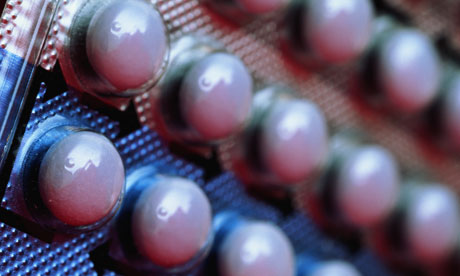
Two months after my second visit to the Gender Identity Clinic, I made an appointment with my GP. Having decided against saving sperm, I was finally arranging my hormone prescription, which the clinic had sent to my surgery.
At least, I assumed they had – I'd seen no confirmation. After a second summer trying to 'pass', struggling with the increased scrutiny that comes with wearing less (especially with the heat ruining my hair and makeup), I was keen to start my hormone replacement therapy, knowing that this would be a vital step towards my goal. The GIC had asked what I anticipated: some facial feminisation, hip growth and breast development, I said, having researched the physical effects on transsexual women (which are similar to those for pubertal cisgender women). The psychological consequences, I said, remained to be seen.
Returning from leave, my GP couldn't find the GIC's letter, and asked if I could remember my prescription. I couldn't. He checked what was available in a book, but none of the oestrogens listed sounded familiar. Finally locating the correspondence, he found a recommendation for estradiol, starting on 2mg and rising to 4mg after a few months.
I asked if I'd need an anti-androgen shot to suppress my testosterone, as I'd heard from friends that it was often combined with HRT. I didn't recall the GIC mentioning it, though; finding no information, my doctor said no, and I rushed to the pharmacy. Finally, after fifteen months of street abuse, long waits for appointments and anxiety over what to disclose to psychiatrists, I was going to get my medication and start aligning my body with my mind.
A trip to the pharmacy
Juliet: Can I have my hormones please?
Pharmacist: Yes.
With the small orange-pink tablets came a leaflet headed "Elleste Solo™ 1mg and 2mg (estradiol hemihydrate)" (Incidentally, this drug costs the NHS nearly two pounds less than the £7.20 prescription charge.) This explained that "Elleste Solo treats the symptoms of menopause (change of life). It is usually given to women who have had a hysterectomy (had their womb removed)." For me, what it didn't say was more interesting than what it did: there was no mention of transsexual women anywhere. Not knowing if the side effects that might trouble menopausal women could bother me, I took my first pill, resisting the temptation to double or treble my dose.
Although I didn't expect any visible changes for at least a few weeks, I warned acquaintances in advance about my anticipated second puberty. This, I expected, would mainly involve painting Smiths lyrics on a satchel in Tippex and insisting that not only were the Manics better before they "sold out", but also that I discovered the band before they did. Several, I suspected, were hoping to see tears and tantrums (I half-expected one in particular to install a hidden camera at my desk) but with the low dose, I noticed very little initial effect: I attributed my rising anger to ditching antidepressants rather than oestrogen.
These preconceptions about the effects made me reconsider Julia Serano's assertion that hormones have become heavily politicised, with male aggression often blamed on testosterone and valid female emotions and opinions frequently dismissed as oestrogenic. I only felt angrier in the office, and soon recognised that my mood owed more to the frustrating realities of working for a public sector organisation placed on long notice by a government I despised than anything else, and tried harder to place my feelings into a social rather than chemical context.
My opinions, tastes and interests haven't changed at all, nor has the overall balance of my emotions (as far as I can tell, anyway) although now I find my feelings a bit harder to ignore, with higher highs and lower lows. Before, I'd always felt that my emotions were somehow flattened: I'd often been told that the hormones would make me cry more often – not just at things that directly affected me – which proved true. I'd always felt emotionally curtailed when confronted with sadness, despite understanding the absurdity of phrases such as "boys don't cry": the first time I noticed this change came as I read a book by Ota Pavel, bursting into – strangely cathartic – tears during a story about his elderly father's final breakdown.
Having dealt with depression for so long, I'd feared the anticipated lows, but they were counterbalanced by the physical changes, slowly but surely modifying my body, beginning a second distinct stage of addressing my lifelong sense of visceral unease. This one, making me comfortable within myself, felt as important as the first, which made me content within my world. (Plenty of transsexual people, of course, address both concurrently.)
As I watched it slowly change, I realised that I'd never quite felt 'trapped in the wrong body', as the cliché goes: more that I could only function if I re-launched the symbiotic relationship between my body and mind from a starting position that felt right. After seeking an alternative for years, considering competing social pressures not to modify my body and not to present as female without making that presentation as unambiguous as possible, the realisation that medically transitioning was the best solution for me was genuinely liberating. Finally, slowly, my body was catching up with my mind.
• Juliet Jacques's column appears fortnightly. You are invited to post comments and questions for Juliet below, and are very welcome to share your own experiences.

